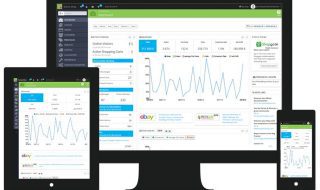
Digital transformation in Government is changing how governments, contractors, and subcontractors conduct business. It has forced businesses and the government to rethink their traditional operations. Additionally, it has opened new opportunities to use digital tools to make valuable and strategic decisions.
The use of technology in government contracting shows that governments are interested and invested in using Information Technology (IT) to streamline change and innovation. Additionally, more government agencies are using technology to advertise for bids, assess whether a contractor meets the standard criteria and communication.
Technology has even opened avenues for businesses like Beryllium Info Sec to assist contractors in complying with standard requirements when doing business with the Department of Defense (DoD). Therefore, this article will discuss how technology revolutionizes government contracting.
- Communication

Technology has opened new communication channels for government and contractors. It has made it quicker, easier, and more efficient to communicate with contractors. Communication channels opened up by technology have been valuable in enhancing productivity and efficiency in government procurement.
Additionally, technology has enabled government agencies to share information with citizens on how tax dollars are being invested. Moreover, technology has enabled government to collect data from employees, suppliers, and citizens to better their services and improve on accountability.
- Adoption Of Cloud Computing
In the past decades, it has been reported that various government departments have adopted cloud computing tools to reduce the need for large-scale IT investments and provide services. Cloud computing allows governments to easily use Information Communication Technology (ICT) products and services.
Additionally, the interest in cloud-based solutions like cloud-based customer relationship management comes from the fact that it’s low cost and can help improve the government’s ability to manage and use data. Moreover, cloud computing has played a major role in improving management efficiency in government contracting. It has helped promote the sharing and the exchanging of information and data.
- Increased Transparency

As governments and businesses adopt various technologies into their procurement processes, they’re likely expected to be more transparent during the government contracting process. The use of technology in government contracting has reduced and prevented opportunities for corruption. Additionally, it has been instrumental in improving efficiency and transparency. With further support within legal frameworks, technology has the potential to build trust among citizens, improve accountability, reduce risk of corruption, and improve government services.
- Deploying and Investing In Automation And Artificial Intelligence (AI)
To increase efficiency, transparency, and reduce time, government agencies may invest in Artificial Intelligence (AI) and automation. According to Oxford Economics’ research on the procurement of digital transformation and supplier collaboration, 37% of public sector agencies are deploying AI and automation, and 52% are investing in it already.
Automation is often used to perform tasks that are repetitive. Organizations utilize automation technology to help free up employees from doing menial duties to focus on high-value tasks. Additionally, it can help improve efficiency and reduce the amount of time spent on different tasks.
AI on the other hand can help the government process large amounts of data within seconds. The use of AI in government contracting has the potential to improve accountability and transparency. AI tools allow the government to use AI to make informed decisions supported by accurate data. However, there’s still work needed on regulating AI to be fully embraced in government contracting.
- Bid Opportunities
Biding for contracts has come easier and more efficient. Governments now can call for bids on their websites or designated portals to reach a wider range of contractors. This enables them to market to new contractors.
Additionally, technology has provided a central location where bids can be advertised, searched, and submitted. Furthermore, with the right applications and software, government agencies can easily filter out contractors that don’t meet their requirements.
Moreover, AI can help small businesses and first-time contractors easily enter the government contracting marketplace. The AI tools will recommend contracts that a contractor is eligible for and match them with a potential government customer.
Furthermore, governments can use AI tools to not only assess the risk on their investments but track a contractor’s performance and new legal frameworks for government contracting as well. In summary, technology has helped government agencies find suppliers, meet the needs of citizens, improve productivity and government operations.
- Predictive Analysis

Technology has enabled governments to gather and use data in identifying trends and patterns that will help generate insights on their contractors and suppliers. Predictive analytics is the use of data to predict future trends and outcomes. It helps organizations determine patterns and produce insights.
In government contracting, predictive analytics has been used to determine events that may impact a suppliers’ ability to deliver on time. Predictive analysis has been an effective tool in risk management and optimization.
However, the government can also request information (in a form of bids) from contractors to perform predictive analysis for certain projects. This will allow for traditional and non-traditional contractors to benefit from predictive analysis bids, which could lead to more opportunities for contractors.
Conclusion
Adopting technology within the government has been slow. However, technology has shown that digital tools have a great potential in improving productivity, transparency, and efficiency. Therefore, as technology continues to advance, it’ll open new opportunities within government contracting that is beneficial to the government, contractors and taxpayers.




